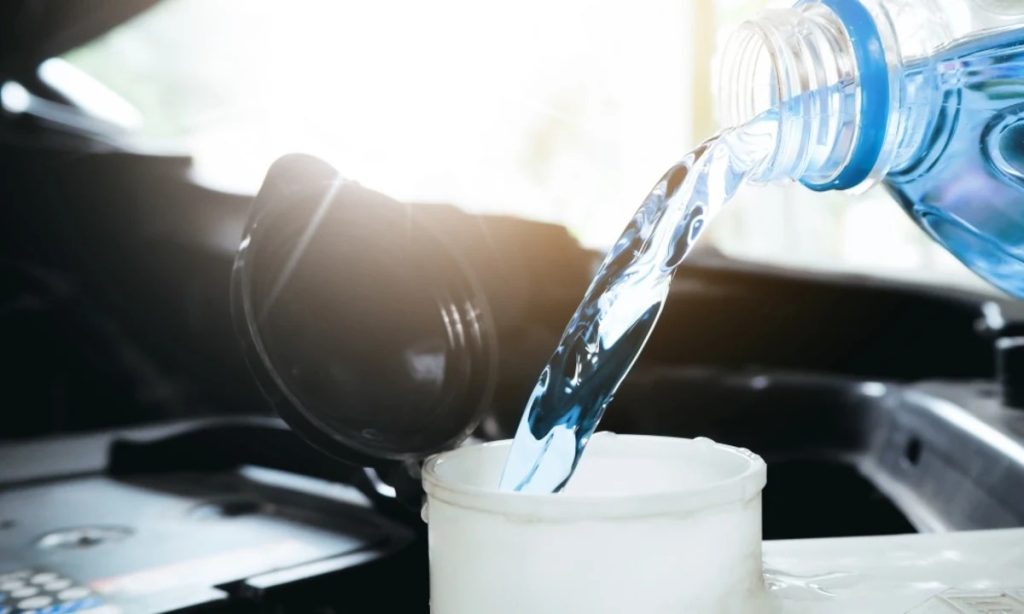A clear view of the windshield is much more than just a matter of cleanliness. Maintaining a clean windshield is also a critical safety aspect. That’s why we’re here to guide you on how to make car washer fluid.
We will cover several DIY approaches on how to make washer fluid using simple ingredients. We will discuss their use and guide you on how to prepare a safe and more efficient cleaning solution. You can also find tips and how to use DIY car washer fluids without causing damage to your vehicle.
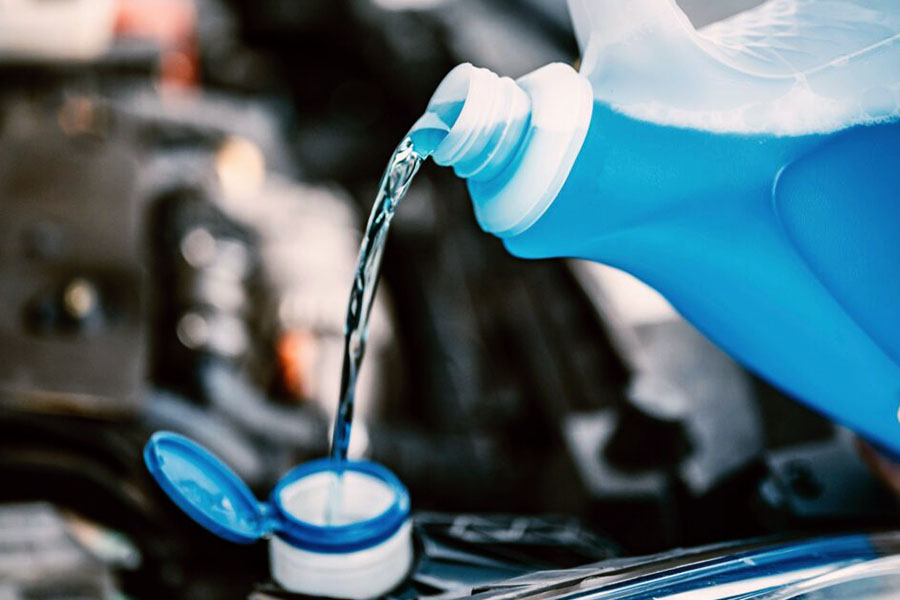
How to Make Car Washer Fluid
We need to emphasize the importance of following instructions accordingly before we explain how to make your own washer fluid for car. Being cautious can help preserve your vehicle and avoid potential problems such as rupturing the hose or freezing your fluid.
Making your washer fluid at home is a cheaper alternative. All that you need for the solutions below are a few basic ingredients. For example, you can make it using vinegar, water, dish soap, ammonia, and window or glass cleaner. This all depends on which solution you choose to make.
There are a couple of different ways of preparing washer fluid, each with a specific purpose. Better said, some washer fluids are more suited for warmer climates, while others offer the best results in dustier environments.
*Important note: One of your primary concerns is to drain your reservoir completely before replacing the washer fluid in your car. We’d recommend flushing the lines with water to eliminate the possibility of mixing old and new washer fluid.
Why DIY Washer Fluid is Best
There are several reasons to consider making your windshield washer fluid. First, it’s cost-effective. Commercial washer fluids can be expensive. You can save a considerable amount of money in the long run.
Second, it’s environmentally friendly. By making your own, you can control what goes into it. Lastly, it’s convenient. You can make and store a large batch, so you always have some on hand when needed.
DIY Windshield Washer Fluid Recipes
1. Vinegar Wiper Fluid
The DIY windshield washer fluid vinegar is an effective solution if you wish to avoid the effects that commercial washers may have on the environment. This solution works great for heavy-pollen situations and is most effective in moderate temperatures.
However, using vinegar means your washer fluid will carry a heavy odor. We recommend using this solution only during autumn or spring, as using it on hot summer days may result in a foul odor.
To create your at-home vinegar washer, combine one vinegar with three parts cold water. This means you will need to add 12 cups of water and 4 cups of vinegar for a one-gallon solution.
You may modify the solution by adding more water or vinegar if needed. White vinegar is preferred over red vinegar, which may leave stains or residues.
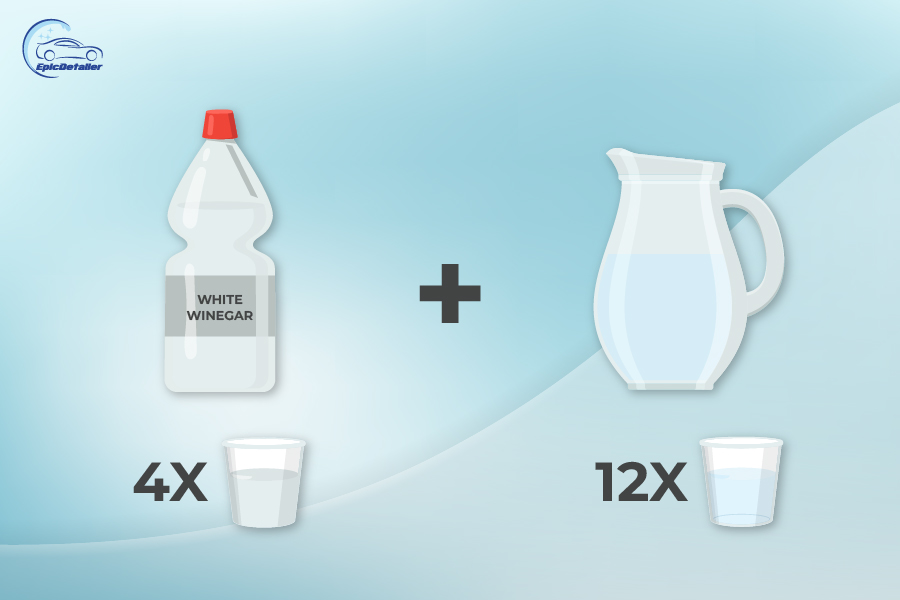
2. Ammonia and Dish Soap
The ammonia-dish soap solution is an excellent choice if you are looking for a universal windshield washer fluid. In this combination, the ammonia is an antifreeze agent and prevents this fluid from freezing when exposed to lower temperatures.
We recommend using a mild soap that isn’t too foamy and additive-free ammonia for best results. This DIY windshield solution is best suited for windshields regularly exposed to mud and heavy dirt.
However, creating this solution comes with an increased risk, as concentrated ammonia may be dangerous if not approached accordingly. We advise using gloves and a protection mask when making this solution. For optimal safety, working in an open or well-ventilated area is best.
Mix one gallon of water with one tablespoon of dish soap or detergent for this windshield cleaner. Pour these into a container, secure the lid and shake. Then, remove the lid and add a cup of ammonia. Close the lid again and gently shake the container.
We recommend performing a dub test before using the fluid to clean your vehicle’s windshield. If the fluid stains, add more water to the mix and perform another test. Repeat the procedure until you ensure the fluid has been diluted properly.
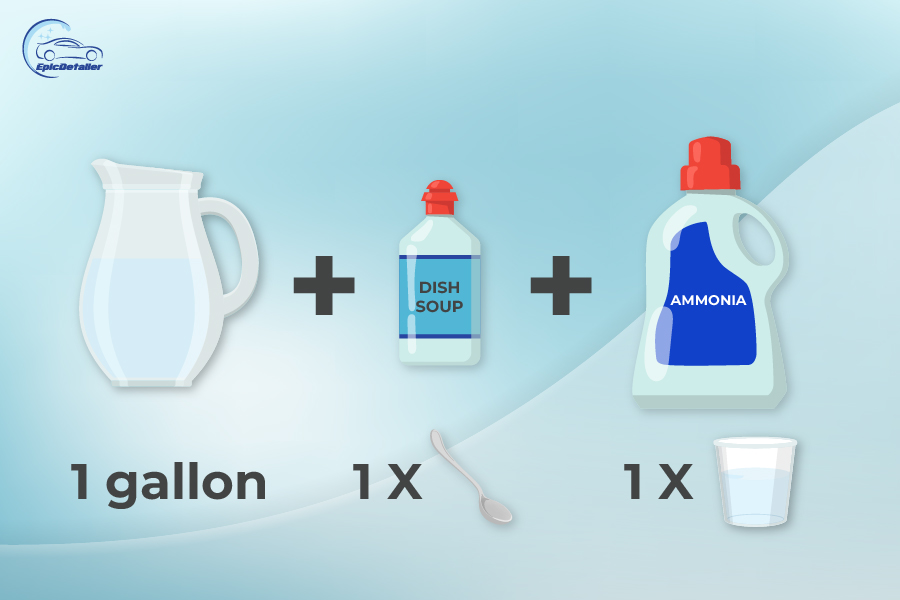
3. Diluted Window Cleaner
One of the things that you, as a car owner, should remember is that not all products work well with heat. Some elements in warmer climates may cause combustion and fire if exposed to heat.
Luckily, this is not the case with the diluted window cleaner solution. On the contrary, this is the DIY windshield cleaner we recommend to individuals who reside in warmer areas or are looking for a solution to clean during summertime.
This is the most straightforward and simplistic windshield fluid recipe on our list. All you need is a window or a glass cleaner (any brand) and one gallon of water. Pour both into a container, secure with a lid, and shake properly before using.
You can perform a dub test to see if you’ve achieved a proper ratio. Put a small amount of fluid onto a cloth and wipe on the corner of the windshield. If the solution leaves a stain, add in more water.
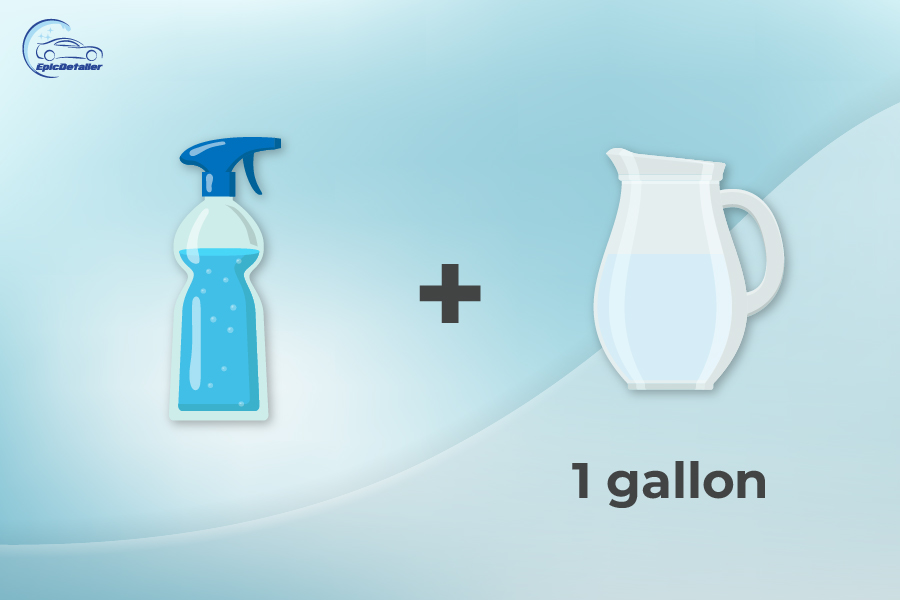
Useful Tips and Practices
Knowing how to use the solution is essential in preserving your vehicle. Regardless of the washer fluid you choose from our list, ensuring the solution contains an antifreeze agent should be a primary concern in colder weather.
Also, commercial windshield washers usually contain stronger forms of alcohol that give them their antifreeze properties. In DIY cleaners, we utilize milder alcohols such as isopropyl or rubbing alcohol. Vodka, which contains 40% alcohol, is also a popular choice in home-made cleaners.
So, here are some important tips on how to handle your washing solution:
- The container you use for the fluid must be properly cleaned before use.
- Ensure you are working in a well-ventilated area when mixing stronger chemicals.
- Use distilled water to avoid the accumulation of mineral deposits in the fluid.
- Never add bleach to these DIY cleaners.
- Take the time to shake the container before use to ensure the agents mix properly.
- Avoid cleaning the windshield with water only as this may cause smearing and fix bacteria onto its surface.
Conclusion
Making your car washer fluids is a simple and cost-effective way to keep your windshield clean while preserving the environment. While the DIY approaches on how to make car washer fluid make a convenient solution, each should be carried out cautiously. This is especially important when using harsh chemicals such as ammonia.
Before taking up such a task, we recommend that you obtain the necessary protective equipment. Plus, to avoid potential damage to the windshield, it is best to do a dub test before applying the fluid over the entire area.

